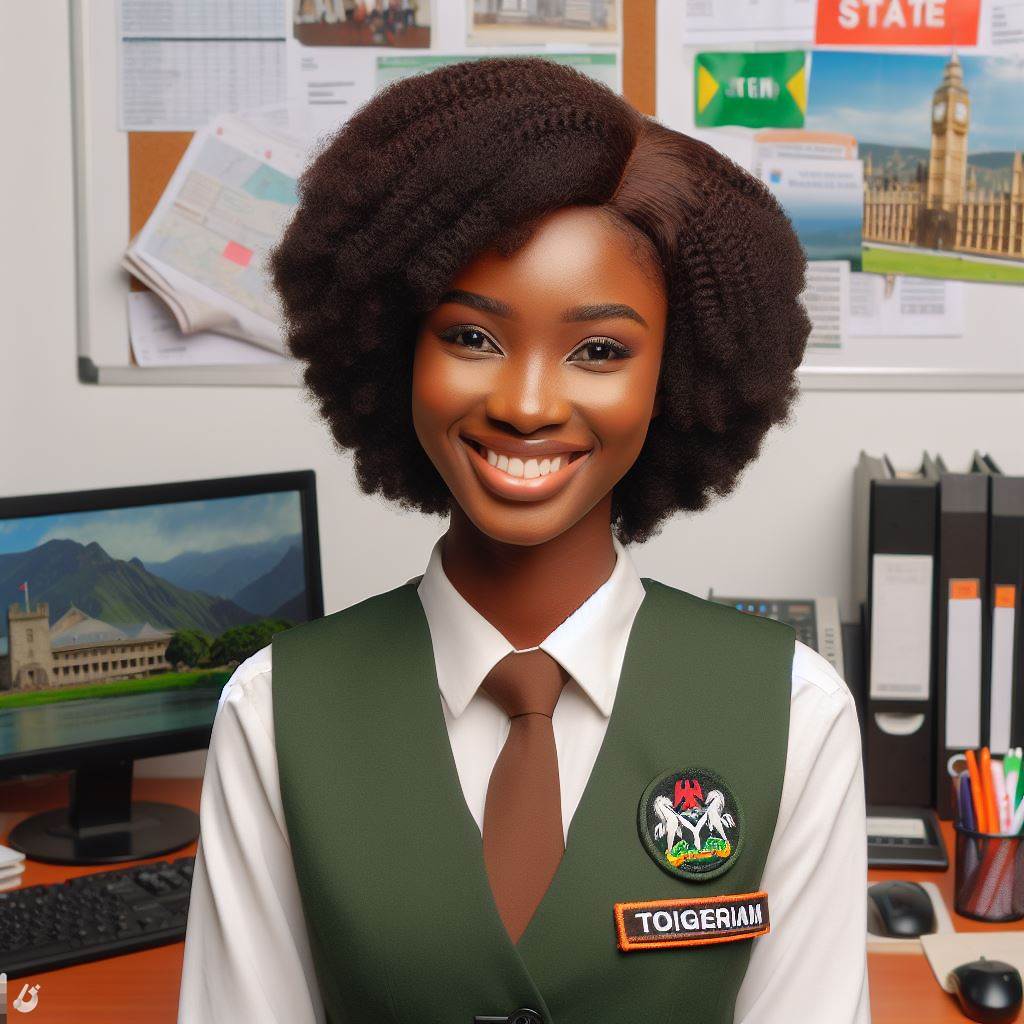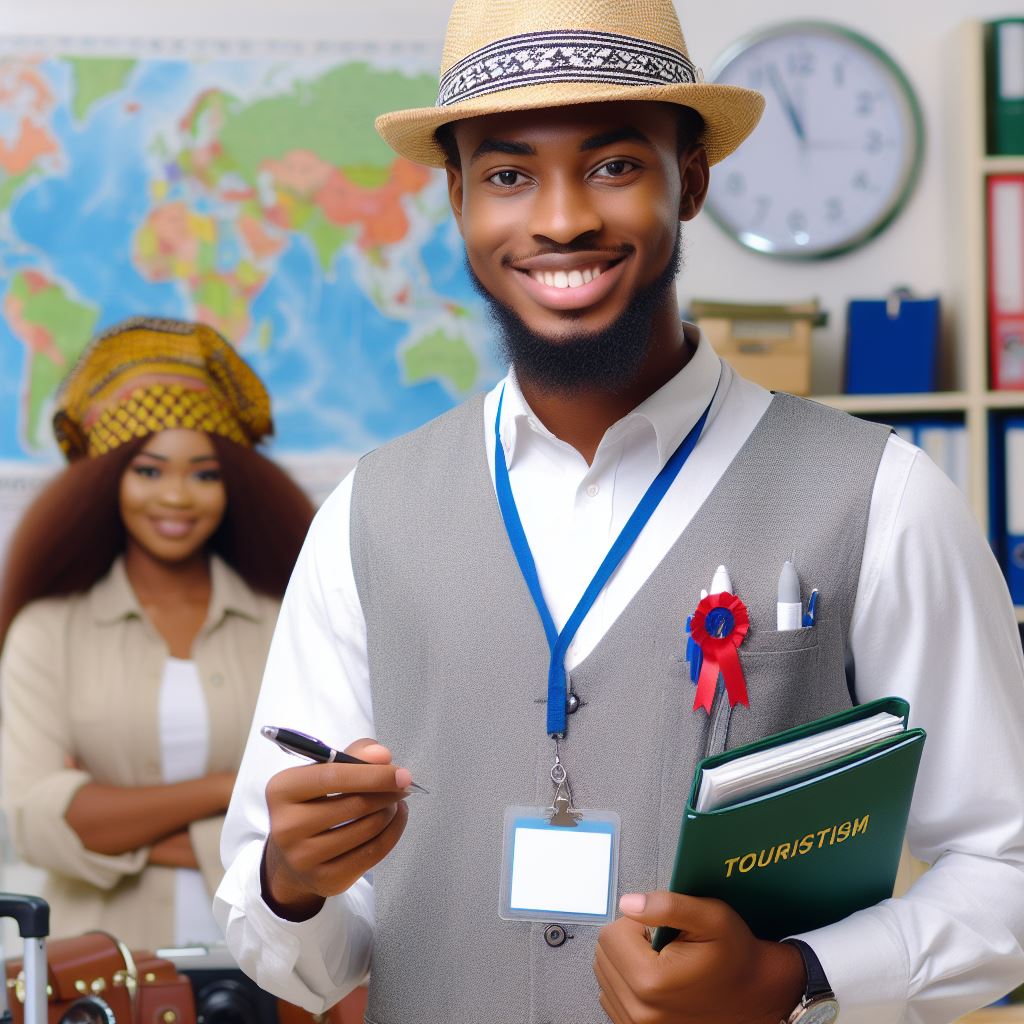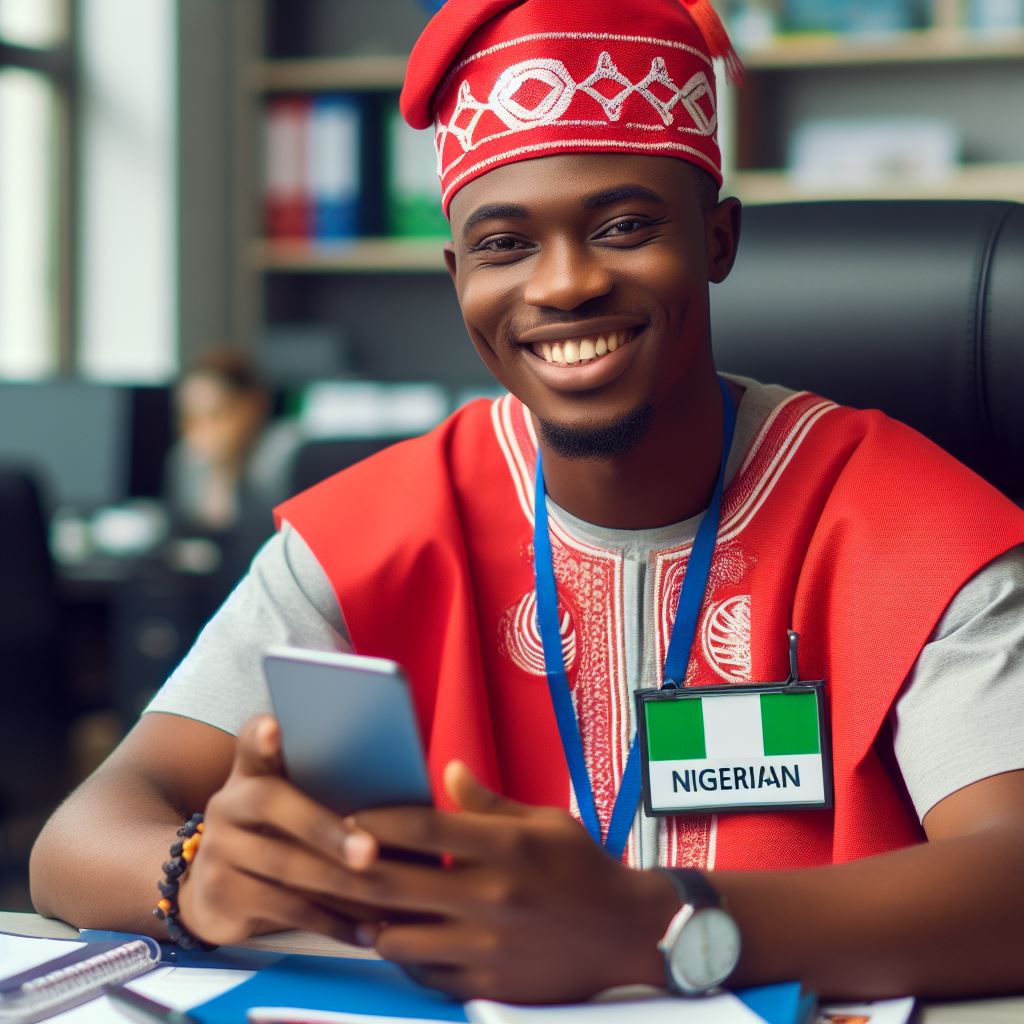Introduction
Events and festivals are crucial in drawing global tourists to Nigeria, showcasing its rich and diverse cultural heritage.
Nigeria’s vibrant events and festivals have the power to captivate tourists from around the world.
Brief overview of the significance of events and festivals in attracting global tourists to Nigeria
Events and festivals play a pivotal role in attracting tourists to Nigeria.
They provide a unique opportunity for visitors to immerse themselves in the country’s rich cultural traditions and experience its vibrant atmosphere.
These events and festivals offer a glimpse into Nigeria’s history, traditions, and customs, making it a captivating destination for global tourists.
Thesis statement indicating that Nigeria has a rich and diverse cultural heritage, reflected in its vibrant events and festivals that captivate global tourists
Nigeria boasts a wealth of cultural heritage, which is brilliantly showcased through its lively and diverse events and festivals.
From the flamboyant costumes to the rhythmic music and dance performances, these events and festivals offer a glimpse into Nigeria’s vibrant and captivating culture.
They serve as a platform for preserving and promoting the country’s traditions while also attracting tourists from all corners of the globe.
In essence, Nigeria’s events and festivals hold immense significance in attracting global tourists.
They serve as a gateway to Nigeria’s rich cultural heritage, offering visitors a chance to partake in the country’s vibrant traditions and immerse themselves in its lively atmosphere.
From traditional ceremonies to modern music festivals, Nigeria’s events and festivals are sure to captivate tourists and leave them with lasting memories.
Historical Background
Nigeria, a country located in West Africa, has a rich historical background that dates back centuries.
It is a country known for its cultural diversity, with over 250 ethnic groups, each with its own unique traditions and customs.
These diverse cultures have greatly influenced the development of events and festivals in Nigeria.
Transform Your Career with Expert Guidance
Get personalized mentorship consulting that’s tailored to your unique path. Our expert advice is actionable and exclusive.
Get StartedNigeria’s Cultural Diversity and Its Influence
The cultural diversity in Nigeria has played a significant role in shaping the events and festivals that captivate global tourists.
The country’s cultural tapestry is a result of historical migrations, intermarriages, and trade relationships, all of which have contributed to the fusion of different cultural practices.
In Nigeria, the main ethnic groups include the Hausa-Fulani, Yoruba, and Igbo, among others.
Each group has its own distinct cultural practices and celebrations that have been incorporated into modern events and festivals.
Traditional Practices and Customs in Modern Celebrations
One key aspect that makes Nigeria stand out is the preservation and incorporation of traditional practices and customs into modern celebrations.
This demonstrates the deep-rooted cultural heritage and the country’s commitment to preserving its traditions.
The annual Argungu Fishing Festival
For example, the annual Argungu Fishing Festival in Kebbi State showcases traditional fishing methods dating back to the 16th century.
The festival attracts tourists from all over the world who come to witness the excitement and skill of the local fishermen.
The Osun-Osogbo Festival
Similarly, the Osun-Osogbo Festival in Osun State celebrates the river goddess Osun and involves a series of traditional rites and rituals.
This festival not only showcases Nigeria’s rich cultural heritage but also highlights the importance of spirituality in the daily lives of Nigerians.
In addition, Nigeria’s traditional attire, such as the Yoruba “aso-oke” and the Igbo “isi-agu,” have become prominent features in modern celebrations.
These traditional garments are now worn during weddings, cultural events, and festivals, adding a touch of authenticity and pride to the celebrations.
Furthermore, traditional music, dance, and drumming are integral parts of Nigerian events and festivals.
The vibrant rhythms and energetic performances create an immersive experience for both locals and tourists, allowing them to fully embrace the country’s cultural diversity.
Transform Your Ideas Into Impactful Words
Struggling to express your thoughts? Let us craft academic papers, articles, or blog posts that captivate, clarify, and connect with your audience.
Get StartedOverall, Nigeria’s events and festivals serve as windows into its diverse cultural landscape.
They not only showcase the country’s historical background but also highlight its vibrant traditions and customs.
The incorporation of traditional practices into modern celebrations adds depth and authenticity to these events, captivating global tourists and giving them a unique experience.
In fact, Nigeria’s events and festivals are a testament to the country’s rich cultural heritage.
The historical background, cultural diversity, and incorporation of traditional practices all contribute to the captivating nature of these celebrations.
As Nigeria continues to embrace its cultural heritage, its events and festivals will undoubtedly continue to mesmerize and attract global tourists.
Read: Research & Trends: How Nigeria is Shaping Global Tourism Education
Major events and festivals in Nigeria
Description of internationally renowned events/festivals held in Nigeria
Nigeria, known as the “Giant of Africa,” captivates global tourists with its vibrant and diverse events and festivals.
Each year, Nigeria hosts internationally renowned events that showcase the country’s rich cultural heritage.
Annual events/festivals celebrated across different states in Nigeria
One of the most famous events held in Nigeria is the Calabar Carnival, which takes place annually in Calabar, the capital city of Cross River State.
This month-long celebration attracts thousands of tourists from around the world.
The carnival features colorful parades, traditional dances, and music that highlight the local culture.
Another internationally acclaimed festival is the Eyo Festival, held in Lagos State.
This festival, known as the “Adamu Orisha Play,” is a unique cultural display that involves masquerades dressed in white robes and colorful hats.
Make Your Study Abroad Dream a Reality
Need help navigating the complexities of studying overseas? Let us guide you through the application and visa process, ensuring a smooth journey to your dream destination.
Get StartedIt celebrates the life and death of a prominent Lagos chief and draws tourists eager to witness this captivating spectacle.
Nigeria also celebrates numerous annual events and festivals across different states.
The Argungu Fishing Festival, held in Kebbi State, is a one-of-a-kind event that attracts anglers from all over the world.
Participants compete in a fishing contest in the Matan Fada River, showcasing their skills and the rich fishing tradition of the area.
In Osun State, the Osun-Osogbo Festival takes place annually.
This religious festival celebrates the river goddess, Osun, and showcases traditional rituals and performances by local artists.
UNESCO has recognized this event as a significant cultural heritage of humanity, further increasing its popularity among tourists.
Variety of celebrations, ranging from religious to cultural and musical festivals
Nigeria’s events and festivals cover a broad spectrum of celebrations, ranging from religious to cultural and musical festivals.
The Eid-al-Fitr is a religious event celebrated at the end of Ramadan, where Muslims come together to pray and feast.
It is a joyous occasion that promotes unity and offers a chance for tourists to immerse themselves in the local culture.
The New Yam Festival, also known as Iri-Ji, is a major cultural festival celebrated by various ethnic groups in Nigeria.
It signifies the end of the rainy season and the beginning of the harvest period.
The festival involves ceremonies, dances, and the consumption of the new yam crop, symbolizing thanksgiving and abundance.
Nigeria’s music scene is vibrant, and the country hosts several renowned musical festivals.
Unlock the Full Potential of Your Research
Stuck in your academic research? Whether it’s data analysis, research design, or literature reviews, we offer expert guidance to elevate your work and ensure success.
Get HelpThe Felabration festival, dedicated to the iconic Afrobeat musician Fela Kuti, attracts music lovers from all over the world.
It features live music performances, street parades, and art exhibitions, paying tribute to Fela’s legacy and promoting African music.
Other notable musical events include the Lagos International Jazz Festival and the Lagos Live Music Festival, both showcasing local and international talent.
These festivals highlight Nigeria’s contribution to the global music industry and provide a platform for emerging artists to showcase their skills.
In short, Nigeria’s events and festivals truly captivate global tourists with their rich diversity and cultural significance.
From the internationally renowned Calabar Carnival and Eyo Festival to the annual celebrations held across different states, there is something for every visitor to experience.
Whether you are interested in religious, cultural, or musical celebrations, Nigeria offers a variety of enchanting festivals that will leave a lasting impression.
Read: Key Modules in Nigerian Tourism & Event Management Programs

Cultural immersion and interactions
Unique opportunities for global tourists to engage with locals and experience Nigerian traditions firsthand
One of the reasons why Nigeria captivates global tourists is its rich cultural immersion and interactions.
Visitors have unique opportunities to engage with locals and experience Nigerian traditions firsthand.
Examples of interactive activities during events/festivals, such as traditional dances, costumes, and local cuisine
During events and festivals, tourists can participate in various interactive activities that showcase the country’s vibrant culture.
These activities include traditional dances, mesmerizing costumes, and mouthwatering local cuisine.
For instance, the annual Lagos Carnival is a colorful extravaganza that attracts tourists from around the world.
Visitors can join in the energetic procession, wearing traditional attire and dancing alongside locals.
Another popular festival is the Osun-Osogbo Sacred Grove, recognized by UNESCO as a World Heritage Site.
During this event, tourists witness sacred rituals, interact with devotees, and even take part in traditional cleansing ceremonies.
Testimonials from tourists who have participated in these events/festivals and their experiences
Testimonials from tourists who have participated in these events paint a vivid picture of their experiences.
One visitor described the Yoruba Festival of Arts and Culture as a transformative journey into the heart of Nigerian traditions.
According to the testimonial, the festival provided an opportunity to not only witness vibrant performances but also engage with local artisans, try their hand at traditional crafts, and taste the delicious local delicacies.
Similarly, another tourist shared their awe-inspiring encounter at the Argungu Fishing Festival, where they witnessed the traditional fishing competition known as “kabanchi.”
They were amazed by the skill and precision displayed by local fishermen.
Aside from witnessing these remarkable events, tourists can also interact with locals on a more personal level.
Many cultural immersion programs allow visitors to stay with Nigerian families, giving them a deeper understanding of the local way of life.
By living alongside Nigerians, tourists can learn about their customs, traditions, and daily routines.
This firsthand experience creates a stronger connection and appreciation for the country’s cultural heritage.
The unique opportunities for global tourists to engage with locals and experience Nigerian traditions firsthand make the country a standout destination.
No longer mere observers, visitors become active participants in the vibrant tapestry of Nigerian culture.
So, if you’re looking for an unforgettable travel experience, look no further than Nigeria’s events and festivals.
Immerse yourself in the lively atmosphere, dance to rhythmic beats, savor the flavors of local cuisine, and create memories that will last a lifetime.
Read: The Interplay of Culture, Transport & Tourism in Nigeria
Economic impact and tourism boost
Positive influence of events/festivals on Nigeria’s economy and tourism sector
In recent years, events and festivals in Nigeria have emerged as a powerful tool to captivate global tourists and boost the country’s economy.
These events and festivals have played a pivotal role in attracting tourists from all over the world, generating revenue, and creating job opportunities.
One of the major positive influences of events and festivals on Nigeria’s economy is their ability to create job opportunities and generate revenue.
These events and festivals require a significant amount of manpower, ranging from event organizers to vendors and performers.
As a result, they create employment opportunities for local communities and contribute to the overall economic growth of the country.
Moreover, events and festivals have become a significant revenue generator for Nigeria.
With the increasing popularity of these events, there has been a surge in tourist spending on accommodation, transportation, food, and other tourist-related services.
This influx of tourist spending not only benefits the local businesses but also contributes to the overall economic development of the country.
Data showcasing the rise in tourism due to the attraction of events and festivals
The rise in tourism due to the attraction of events and festivals is further substantiated by statistics and data.
According to recent reports, the number of tourists visiting Nigeria has significantly increased during major events and festivals.
For example, during the annual Calabar Carnival, which is one of the most popular events in Nigeria, the city witnesses a massive influx of both domestic and international tourists, resulting in a substantial boost to the local economy.
Similarly, the Lagos International Jazz Festival has attracted jazz enthusiasts from around the world, contributing to the growth of the tourism sector.
These events and festivals have not only put Nigeria on the global tourism map but have also helped in dispelling negative stereotypes associated with the country, attracting more tourists in the process.
Economic impact of these events
Furthermore, events and festivals have proven to be an effective marketing tool for Nigeria.
Through the promotion of these events, Nigeria’s rich cultural heritage, diversity, and hospitality are showcased to the world.
This not only helps in attracting tourists but also fosters a positive image of the country, encouraging more visitors to explore the unique experiences Nigeria has to offer.
As Nigeria continues to host various events and festivals throughout the year, the economic impact and boost to the tourism sector are expected to grow.
With the support of the government and private organizations, these events can continue to stimulate economic growth, create employment opportunities, and enhance Nigeria’s image as a top tourist destination.
In general, events and festivals in Nigeria have a significant positive influence on the country’s economy and tourism sector.
Not only do they create job opportunities and generate revenue, but they also attract tourists from around the world.
Through these events, Nigeria’s cultural heritage and diversity are showcased, contributing to a positive image of the country.
With the increasing popularity of events and festivals, Nigeria is well on its way to becoming a top tourist destination.
Read: Student Experiences: Journey through Nigeria’s Event Management Courses
Challenges and future prospects
Challenges faced in organizing and promoting events/festivals in Nigeria
- Lack of proper infrastructure poses a significant challenge in organizing and promoting events/festivals in Nigeria.
- Poor roads, inadequate transportation facilities, and limited accommodation options hinder the smooth conduct of events.
- Security concerns, such as terrorism and criminal activities, act as major deterrents for both tourists and event organizers.
- The fear of potential violence and instability affects the perception of Nigeria as a safe destination for events and festivals.
Potential solutions and strategies to overcome these challenges
- Investing in infrastructure development is crucial to ensure the success and growth of events/festivals in Nigeria.
- Improving road networks, expanding airports, and enhancing public transportation systems will facilitate easy access for tourists.
- Collaboration between the government, private sector, and international organizations can help address security concerns.
- Enhancing law enforcement, implementing advanced security technologies, and intelligence sharing are key strategies.
Opportunities for growth and expanding Nigeria’s appeal to global tourists through consistent improvement of events and festivals
- Nigeria has a rich cultural heritage and diverse traditions that can be showcased through well-planned festivals and events.
- Promoting and organizing festivals that highlight Nigeria’s music, art, dance, and cuisine will attract international tourists.
- Creating an atmosphere of inclusivity and ensuring the participation of local communities will enhance the authenticity of events.
- Collaborating with international artists, performers, and cultural organizations will broaden the global appeal of Nigerian events/festivals.
- Establishing partnerships with travel agencies and leveraging digital platforms will increase the reach and visibility of events.
- Investing in marketing and advertising campaigns targeting specific global markets will enhance Nigeria’s image as an attractive tourist destination.
- Providing world-class hospitality services, including accommodations and amenities, will enhance the overall visitor experience.
In a nutshell, Nigeria faces several challenges in organizing and promoting events/festivals, including infrastructure limitations and security concerns.
Nigeria can captivate global tourists and expand appeal by investing in infrastructure, addressing security, and enhancing events.
These actions pave the way for a vibrant cultural destination.
Conclusion
Nigeria’s rich cultural heritage and diverse range of events and festivals captivate global tourists.
These events and festivals showcase the vibrant traditions and customs of the country, creating a unique and unforgettable experience for visitors.
From the colorful and energetic Eyo Festival to the mystical and spiritual Osun-Osogbo Festival, Nigeria offers a wide array of cultural celebrations that capture the imagination of tourists worldwide.
These events and festivals not only entertain and engage visitors, but they also play a crucial role in preserving and promoting Nigeria’s cultural traditions.
By participating and supporting these events, both locals and tourists contribute to the preservation and continuation of Nigeria’s rich heritage.
Furthermore, these celebrations serve as a platform for cultural exchange and understanding, fostering a sense of unity and appreciation among people of different backgrounds.
It is essential to recognize the significance of these events and festivals in showcasing Nigeria’s cultural diversity and history.
They connect past and present, allowing global tourists to gain a deeper understanding of the country’s traditions and values.
By promoting and preserving these cultural traditions through events and festivals, Nigeria can continue to captivate and enchant visitors from all over the world.
The events and festivals in Nigeria are powerful tools for promoting cultural preservation, tourism, and global harmony.
The captivating nature of these celebrations serves as an invitation for individuals to explore and immerse themselves in Nigeria’s rich cultural tapestry.
By continuing to support and participate in these events, we can ensure the preservation of Nigeria’s cultural traditions for generations to come.
Let us celebrate and cherish this incredible heritage together.




